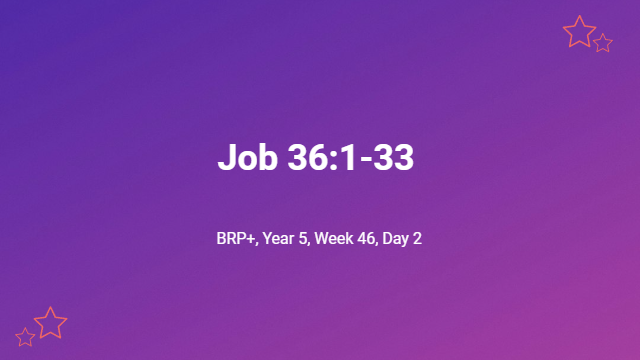Job 36:1-33
Q.1. Why should we be slow to question God? What did Elihu claim about God’s dealing with the wicked and the righteous? How did he view Job? – (Job 36:1-16)
Elihu affirmed that the – 4 … One who is perfect in knowledge is with you. 5 “Behold, God is mighty but does not despise any; He is mighty in strength of understanding (Job 36:4-5). This should make us reluctant to question what we do not understand. Again Elihu overstated God’s destruction of the wicked in life, and the prosperity of the righteous (Job 36:6-12). Though his claims hold true for after God’s judgment in the afterlife, it is a perplexing reality, that the afflicted are not always delivered in the short term (c.f. Job 36:15). The inference seemed to be that if Job was being punished, then God had found him out because of his unrighteousness (Job 36:16).
Q.2. What warning did Elihu give Job? Why are we not in a position to question God? What examples did he give, highlighting God’s providence? – (Job 36:17-33)
Elihu warned Job that the judgment he had sought for the wicked may be applied by God to him. He urged him to not let his complaint in his suffering lead him into further chastisement (Job 36:17-18). He argued that Job should embrace his suffering, rather than level complaints against God (Job 36:19-21). He considered it sinful to question One as great as God – 22 “Behold, God is exalted in His power; Who is a teacher like Him? 23 “Who has appointed Him His way, and who has said, `You have done wrong’?… 26 “Behold, God is exalted, and we do not know Him; The number of His years is unsearchable (Job 36:22-23 & 26). He then shared a number of examples of God’s power, that no one is able to duplicate or even explain – the complexity of the weather, thunder and lightning, the production of food, and domestic animals.

